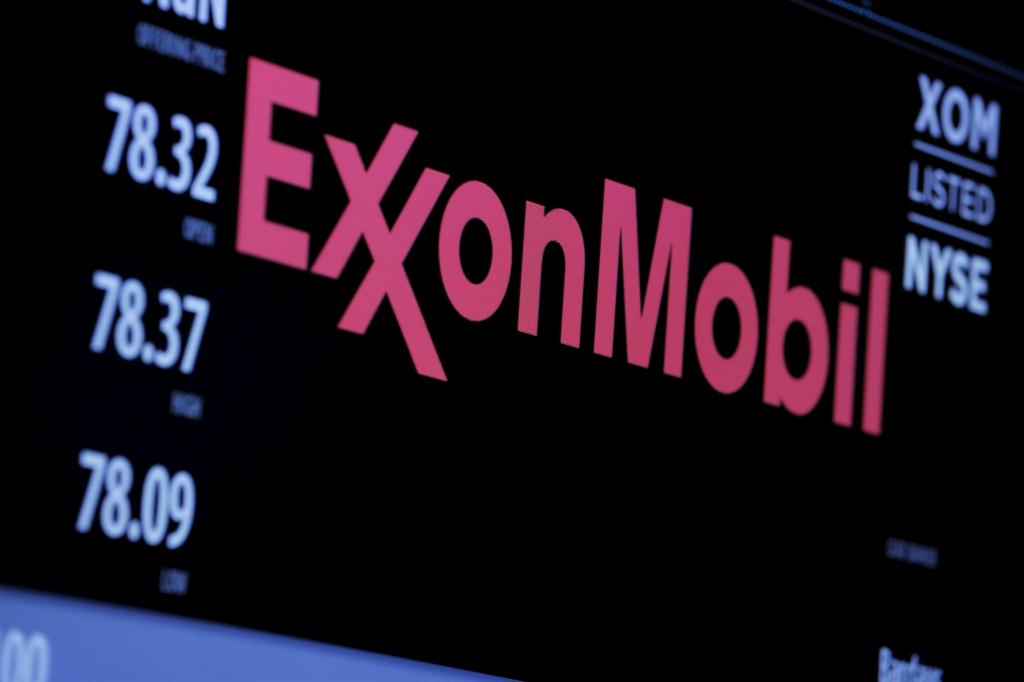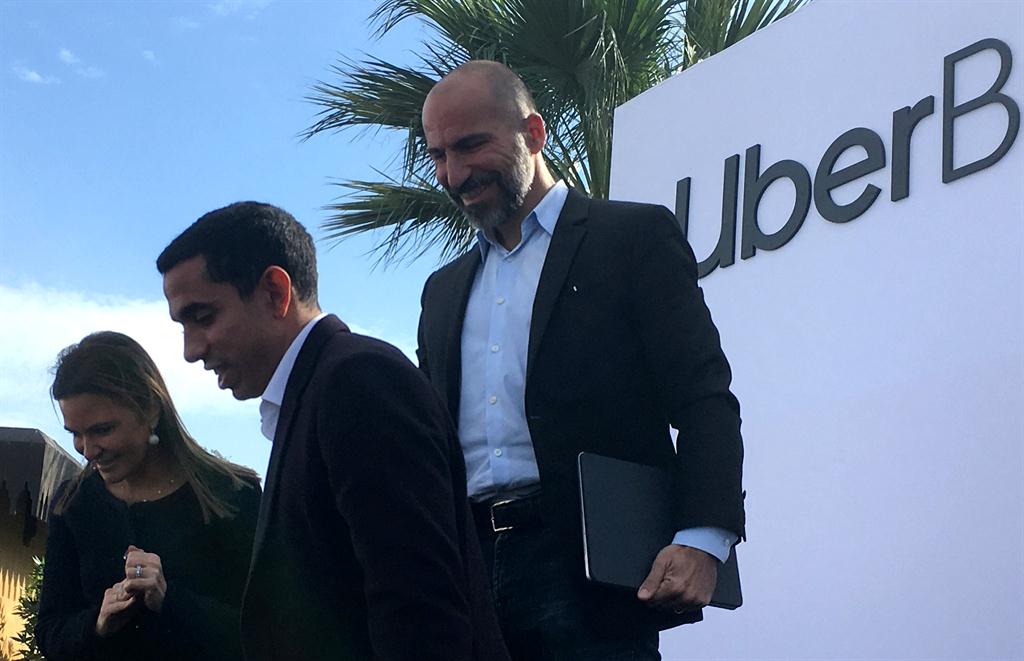Company news in brief
Exxon seeks to sell its stake in Azeri
Exxon Mobil is seeking to sell its stake in Azerbaijan's largest oil field, once dubbed the "contract of the century", as the US oil and gas giant re-focuses its global operations, industry and banking sources said.
Exxon is hoping to raise up to US$2 billion from the sale of its 6.8% in the Azeri-Chirag-Gunashli (ACG) field in the Caspian Sea, according to the sources.
The sale would mark the end of a 25-year journey. Exxon was among five US oil companies that helped create Azerbaijan's current oil industry soon after the collapse of the Soviet Union, and signing the deal in 1994.
The deal was dubbed by Azerbaijan and partners as the "the contract of the century" thanks to the field's large reserves and hopes of future major discoveries that would help Europe diversify away from Russian oil and gas.
Even though the project is operated by British oil major BP, it had received substantial US government support and a total of five American companies initially participated in the deal, including Exxon, Amoco, Unocal, Pennzoil and McDermott. – Nampa/Reuters
Visa, Mastercard offer to cap tourist card fees
Visa and Mastercard have offered to cap the fees charged on card payments made by tourists in the European Union to stave off fines and end an EU antitrust investigation.
The European Commission, which has waged a decades-long crackdown on payment and credit card fees, says so-called interchange fees in which the merchant's bank pays a charge to the cardholder's bank, result in higher prices for consumers.
This is because the fees, which are a lucrative source of revenue for banks, are ultimately borne by the merchant.
Visa, the world's largest payments network operator, and its closest rival Mastercard have proposed a 0.2% fee on non-EU debit card payments carried out in shops and a 0.3% fee on credit card payments, the Commission said on Tuesday.
This would bring their fees in line with those charged for EU cards, which were the subject of a long EU investigation after a 1997 complaint by business lobby EuroCommerce. – Nampa/Reuters
Thomson Reuters to cut 3 200 jobs
Thomson Reuters Corp said on Tuesday that it will cut its workforce by 12% in the next two years, axing 3 200 jobs, as part of a plan to streamline the business and reduce costs.
The news and information provider, which completed the sale of a 55% stake in its Financial & Risk (F&R) unit to private equity firm Blackstone Group LP, announced the cuts during an investor day in Toronto, in which it outlined its future strategy and growth plans.
The company also aims to grow annual sales by 3.5% to 4.5% by 2020, excluding the impact of any acquisitions.
As part of the streamlining, the company said it planned to reduce the number of offices around the world by 30% to 133 locations by 2020.
Thomson Reuters set a target to reduce its capital expenditure to between 7% and 8% of revenue in 2020 from 10% currently.
Shares in Thomson Reuters have risen by 40% since May, benefiting from the company buying back US$10 billion worth of shares. – Nampa/Reuters
Siemens looks for faster growth in 'smart' buildings
Siemens wants to grow its building technologies business faster than the overall construction market next year, possibly with help from acquisitions, the business' chief executive Matthias Rebellius said on Tuesday.
The business, which has its head office in Zug, Switzerland, makes devices and software to control the heating, lighting, energy use and security in so-called smart buildings.
Rebellius said he expected the overall construction market to grow by around 3% next year, with Siemens taking market share from rivals that include Johnson Controls and Honeywell.
The division is targeting faster growth in Asia, where it currently gets around 10% of its sales, as well as focusing on digital buildings - which sense, collect and analyse data to improve their energy use, for example.
During Siemens' 2018 financial year, the building technology business's profit slipped to 755 million euro from 784 million a year earlier, while its sales rose 6% to 6.6 billion euro. It achieved a profit margin of 11.4%, above its target range of 8% to 11%. – Nampa/Reuters
Uber launches bus-booking service in Cairo
Uber Technologies Inc has launched a bus-booking service in Cairo, the company's chief executive said on his first visit to Egypt on Tuesday, as the company aims to tap a sprawling low-income market.
The company also announced a new Uber Lite app that, from early next year, will allow users with basic Android phones and little connectivity to book trips in the Middle East.
Egypt is home to more than 5 million Uber users, he said, adding that the company is also investing more than US$100 million in an Egyptian customer support centre.
The new bus service will be the cheapest of Uber's services in Cairo, he said.
The announcement came a day after Uber's Middle East rival Careem launched a bus-booking service in Egypt. – Nampa/Reuters
Exxon Mobil is seeking to sell its stake in Azerbaijan's largest oil field, once dubbed the "contract of the century", as the US oil and gas giant re-focuses its global operations, industry and banking sources said.
Exxon is hoping to raise up to US$2 billion from the sale of its 6.8% in the Azeri-Chirag-Gunashli (ACG) field in the Caspian Sea, according to the sources.
The sale would mark the end of a 25-year journey. Exxon was among five US oil companies that helped create Azerbaijan's current oil industry soon after the collapse of the Soviet Union, and signing the deal in 1994.
The deal was dubbed by Azerbaijan and partners as the "the contract of the century" thanks to the field's large reserves and hopes of future major discoveries that would help Europe diversify away from Russian oil and gas.
Even though the project is operated by British oil major BP, it had received substantial US government support and a total of five American companies initially participated in the deal, including Exxon, Amoco, Unocal, Pennzoil and McDermott. – Nampa/Reuters
Visa, Mastercard offer to cap tourist card fees
Visa and Mastercard have offered to cap the fees charged on card payments made by tourists in the European Union to stave off fines and end an EU antitrust investigation.
The European Commission, which has waged a decades-long crackdown on payment and credit card fees, says so-called interchange fees in which the merchant's bank pays a charge to the cardholder's bank, result in higher prices for consumers.
This is because the fees, which are a lucrative source of revenue for banks, are ultimately borne by the merchant.
Visa, the world's largest payments network operator, and its closest rival Mastercard have proposed a 0.2% fee on non-EU debit card payments carried out in shops and a 0.3% fee on credit card payments, the Commission said on Tuesday.
This would bring their fees in line with those charged for EU cards, which were the subject of a long EU investigation after a 1997 complaint by business lobby EuroCommerce. – Nampa/Reuters
Thomson Reuters to cut 3 200 jobs
Thomson Reuters Corp said on Tuesday that it will cut its workforce by 12% in the next two years, axing 3 200 jobs, as part of a plan to streamline the business and reduce costs.
The news and information provider, which completed the sale of a 55% stake in its Financial & Risk (F&R) unit to private equity firm Blackstone Group LP, announced the cuts during an investor day in Toronto, in which it outlined its future strategy and growth plans.
The company also aims to grow annual sales by 3.5% to 4.5% by 2020, excluding the impact of any acquisitions.
As part of the streamlining, the company said it planned to reduce the number of offices around the world by 30% to 133 locations by 2020.
Thomson Reuters set a target to reduce its capital expenditure to between 7% and 8% of revenue in 2020 from 10% currently.
Shares in Thomson Reuters have risen by 40% since May, benefiting from the company buying back US$10 billion worth of shares. – Nampa/Reuters
Siemens looks for faster growth in 'smart' buildings
Siemens wants to grow its building technologies business faster than the overall construction market next year, possibly with help from acquisitions, the business' chief executive Matthias Rebellius said on Tuesday.
The business, which has its head office in Zug, Switzerland, makes devices and software to control the heating, lighting, energy use and security in so-called smart buildings.
Rebellius said he expected the overall construction market to grow by around 3% next year, with Siemens taking market share from rivals that include Johnson Controls and Honeywell.
The division is targeting faster growth in Asia, where it currently gets around 10% of its sales, as well as focusing on digital buildings - which sense, collect and analyse data to improve their energy use, for example.
During Siemens' 2018 financial year, the building technology business's profit slipped to 755 million euro from 784 million a year earlier, while its sales rose 6% to 6.6 billion euro. It achieved a profit margin of 11.4%, above its target range of 8% to 11%. – Nampa/Reuters
Uber launches bus-booking service in Cairo
Uber Technologies Inc has launched a bus-booking service in Cairo, the company's chief executive said on his first visit to Egypt on Tuesday, as the company aims to tap a sprawling low-income market.
The company also announced a new Uber Lite app that, from early next year, will allow users with basic Android phones and little connectivity to book trips in the Middle East.
Egypt is home to more than 5 million Uber users, he said, adding that the company is also investing more than US$100 million in an Egyptian customer support centre.
The new bus service will be the cheapest of Uber's services in Cairo, he said.
The announcement came a day after Uber's Middle East rival Careem launched a bus-booking service in Egypt. – Nampa/Reuters







Comments
Namibian Sun
No comments have been left on this article